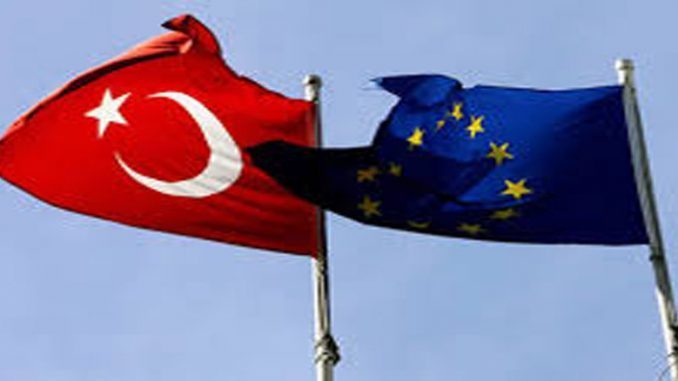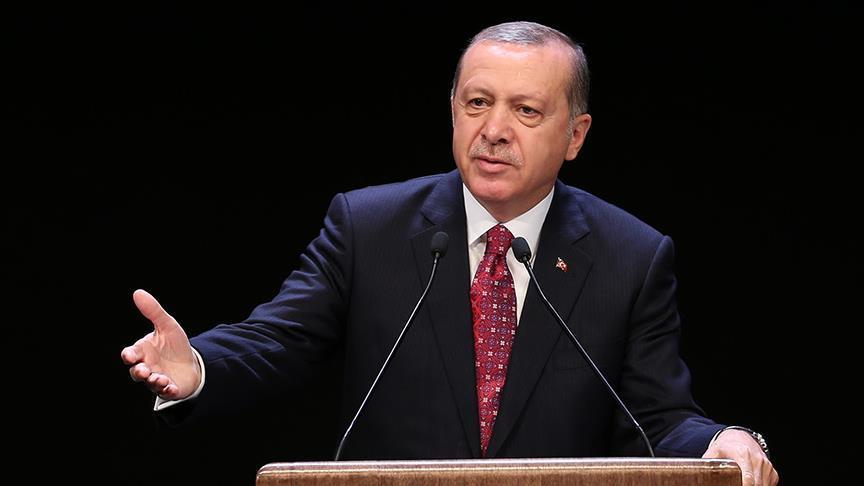
Turkey-EU relations have had their ups and downs; however, the last three years have been really trying times. A turning point was the July 2016 failed military coup attempt. The EU failed to support the democratically elected government in Turkey and its need to rid itself of the Gülenist Terror Group (FETÖ).
No one was ever under the illusion that Turkey’s path to joining the EU would be easy and the most optimistic understood that formidable challenges lay ahead. To start, the EU failed to evaluate Turkey’s policy choices from the prism of Turkey’s national interest, priorities and geopolitical realities, instead opting to exaggerate the role of ideational factors such as identity and culture.
Some in Europe came to the simplistic conclusion that “Islamic identity” shaped Turkey’s foreign policy, while others have come to the equally simplistic conclusion that Turkey is in search of a new state identity different from the one imposed by the founders of the Turkish Republic and in search of a leading role in the Middle East region. In this view, according to some EU members, Turkey’s search for a new identity and role has caused Turkey to turn its back on the EU and its values and principles. The rise of nationalism, Islamophobia and extreme-right parties in Europe have complicated things further. The EU has little appetite left to welcome a large Muslim country such as Turkey.
Turkey on the other side has always been suspicious of the EU’s intentions and sincerity. Many in Turkey harbor hostile feelings toward the West in general and believe, rightly or not, that the West is behind many conspiracies to undermine the rise of Turkey.
Many accuse the EU of not being a true ally and not supporting Turkey against the threats coming across the border from Syria and Iraq and against the threat of terrorist organizations active against Turkey inside and outside its borders. Furthermore, Turkey, to its fault, has done a mediocre job in managing perceptions and its image in European capitals. Turkey is viewed today by Europeans as a country that has backtracked on democracy, freedom of speech, transparency and the rule of law.
The above challenges do not mean that there is no hope for Turkey-EU relations. The two sides need each other. For example, Turkey has the audacious goal of wanting to become one of the largest 10 economies in the world by the centennial anniversary of the establishment of the Turkish Republic (which will be in 2023). Turkey cannot achieve such a goal without having good relations with is largest trading partner, the EU. According to European Commission trade statistics, in 2017 the EU accounted for 44.5 percent of Turkey’s exports and 38 percent of Turkey’s imports. On the opposite side, Turkey presents a major trade partner for the EU with Turkey being the EU’s fourth-largest export market and fifth-largest provider of imports.
In addition to trade relations, both side have suffered tremendously from terrorist attacks. Both Turkey and the EU need each other in the fight against terrorism and the expected return of foreign terrorist fighters from Syria and Iraq. Both sides also are members of the North Atlantic Treaty Organization (NATO) and need to work closely with each other to maintain regional and global peace and security.
More critical for the EU is stemming the tide of refugees entering the EU. The March 2017 EU-Turkey refugee agreement aimed at stopping the flow of irregular migration via Turkey to Europe. According to the United Nations High Commissioner for Refugees (UNCHR) the number of refugees entering Europe in 2015 was more than 1 million. The number dramatically decreased in 2017 with the number of refugees entering Europe standing at slightly less than 184,000. These numbers show that the agreement is successful and that Turkey is holding up its part of the deal.
In addition, the Trump administration has lately brought both Turkey and the EU closer to each other. The U.S. economic war against Turkey and trade war against Europe coupled with the harsh rhetoric of U.S. President Donald Trump against traditional U.S. allies have reminded Turkey and the EU of how much they need each other. The support provided to Turkey by German Chancellor Angela Merkel and French President Emmanuel Macron in the wake of the U.S. economic war against Turkey was received with great appreciation in Ankara.
The challenges facing Turkey-EU relations are not insurmountable and the mutual needs and the common interests and threats provide an opportunity to revive relations. The EU can start by honoring its commitment to lift visa restrictions on Turkish citizens as part of its refugee agreement with Turkey. Doing so will enhance the EU’s credibility in the eyes of Turkey. The EU can score additional credibility points by upgrading the customs union agreement. The opening of Chapter 23: Judiciary and fundamental rights, and Chapter 24: Justice, freedom and security, can provide a big impetus for reviving Turkey-EU relations. The EU should always keep Turkey’s opportunity to join the EU alive, possible and real. This is not a free concession from the EU, on the contrary, it serves to increase EU leverage over Turkey.
Turkey for its part should continue to adopt the Copenhagen criteria and should demonstrate to the EU its commitment to embrace the ideals, principles and values of the EU. Turkey should also carefully manage its image in EU circles. Internal and international policy decisions by Ankara should be made with consideration of how they will be perceived in EU capitals. The need to revive Turkey-EU relations obligates both sides to work through their differences and to find solutions and common ground.
*BY: FADI FARASIN, is a political researcher and analyst based in Ankara. The article was published in Daily Sabah Turkish newspaper on October 18, 2018.



